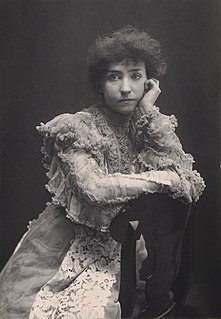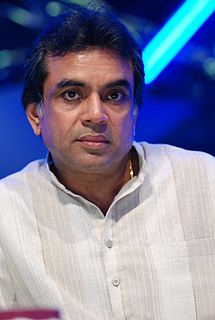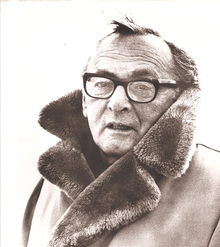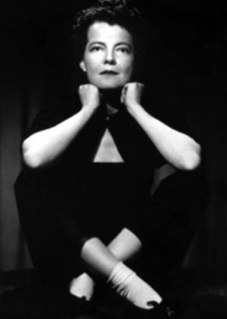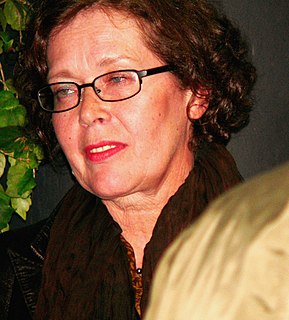A Quote by Minnie Maddern Fiske
It is in the irony of things that the theatre should be the most dangerous place for the actor. But, then, after all, the world is the worst possible place, the most corrupting place, for the human soul. And just as there is no escape from the world, which follows us into the very heart of the desert, so the actor cannot escape the theatre. And the actor who is a dreamer need not. All of us can only strive to remain uncontaminated. In the world we must be unworldly, in the theatre the actor must be untheatrical.
Related Quotes
Being an actor in TV or movies is different. A film or TV actor, if put in theatre, won't know certain dimensions, while a theatre actor won't know certain things when he comes before the camera. So I think a film actor can learn emoting from this theatre counterpart, while the theatre actor can learn about camera techniques from the film actor.
Life beats down and crushes our souls and theatre reminds us that we have one. At least the type of theatre that I'm interested in; that is, theatre that moves an audience. You have the opportunity to literally impact the lives of people if they work on material that has integrity. But today, most actors simply want to be famous. Well, being an actor was never supposed to be about fame and money. Being an actor is a religious calling because you've been given the ability, the gift to inspire humanity. Think about that on the way to your soap opera audition.
I'm never in Hollywood! I'm a theatre actor that lives in New York. I'm very seldom in Los Angeles. I don't dislike LA, I just don't think it's a very healthy place for me to be all the time. When I'm shooting a movie there and am working I'm perfectly happy. But when I'm not working or engaged in something it's a place that I wouldn't live.
I didn't particularly aim to be a Shakespeare actor, but I suppose I had a certain gift or it; I certainly got offered lots of it. I liked Complicite and Shared Experience and Kick Theatre, and all the small theatre companies that were getting going. I wanted to be like that, making original theatre.
An actor and a [theatre] director are both what I would call interpreters of work. We interpret a work, just as a musician will interpret a composer's work, we interpret the work of a playwright. We are servants of the theatre and I've always believed that. We must serve what has been written, that's what we're there for.
